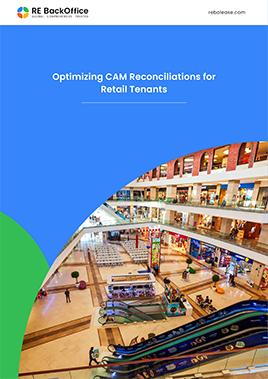
In the realm of commercial real estate leasing, the concept of "Quiet Enjoyment" plays a crucial role in defining tenant rights and responsibilities. It ensures that tenants have the right to use and enjoy their leased premises without interference from the landlord or any third party. Understanding the nuances of Quiet Enjoyment is essential for both landlords and tenants to maintain harmonious lease agreements and prevent disputes.
What is Quiet Enjoyment?
Quiet Enjoyment, often included as a covenant in commercial lease agreements, guarantees tenants the right to undisturbed use of their rented property. This means that during the lease term, landlords must refrain from actions that would disrupt the tenant's ability to operate their business or otherwise enjoy the premises as intended.
Key Elements of Quiet Enjoyment
- Freedom from Interference:Tenants have the right to operate their business without unnecessary interference from the landlord. This includes peaceful possession of the leased space without disruptions such as unauthorized entry, construction noise, or other disturbances initiated by the landlord.
- Non-Disturbance by Landlord:
- Landlords are obligated to ensure that tenants are not disturbed by the landlord's actions or negligence. This includes timely repairs and maintenance that do not inconvenience the tenant, as well as addressing environmental issues or structural problems promptly and effectively.
- Legal Protection: Quiet Enjoyment is not just a practical consideration but also a legal right. Tenants have legal recourse if their Quiet Enjoyment rights are breached, which can include seeking damages or terminating the lease agreement.
Importance of Quiet Enjoyment in Commercial Leases
Quiet Enjoyment provisions are crucial for attracting and retaining tenants in commercial real estate. Businesses require a stable environment to thrive, and the assurance of undisturbed use of leased premises encourages long-term tenant satisfaction and lease renewals.
Quiet Enjoyment is paramount in commercial leases as it ensures tenants can conduct their business operations without undue interference or disturbances. For businesses, especially those reliant on consistent operations and customer interactions, a stable and peaceful environment is crucial. Tenants seek assurances that they can use their leased premises without disruptions that could affect productivity or customer experience. Landlords who prioritize Quiet Enjoyment attract and retain high-quality tenants, fostering long-term lease agreements and enhancing property value through tenant satisfaction.
Landlord Responsibilities Under Quiet Enjoyment
Landlords must uphold their obligations to ensure Quiet Enjoyment for tenants. This involves maintaining the property in a manner that minimizes disruptions, responding promptly to tenant concerns, and respecting the tenant's right to privacy and peaceful occupation.
Under the principle of Quiet Enjoyment, landlords bear significant responsibilities to maintain the leased premises in a manner that supports tenant operations. This includes ensuring the premises are free from disturbances caused by the landlord's actions or negligence. Responsibilities typically encompass timely repairs, regular maintenance, and adherence to building codes and environmental regulations. Landlords must also respect tenant privacy and rights to peaceful occupation, addressing issues promptly and proactively to avoid breaching Quiet Enjoyment covenants. By fulfilling these responsibilities, landlords uphold lease agreements, mitigate legal risks, and cultivate positive landlord-tenant relationships.
Legal Implications and Remedies
From a legal standpoint, Quiet Enjoyment is enforceable under lease agreements and landlord-tenant laws. If a landlord breaches Quiet Enjoyment rights by, for example, failing to address persistent noise issues or allowing unauthorized access to the premises, tenants can seek legal remedies such as rent abatement or even lease termination in severe cases.
Quiet Enjoyment carries substantial legal implications for both landlords and tenants. When landlords fail to uphold Quiet Enjoyment rights, tenants may pursue legal remedies. These can include seeking rent abatement for periods of disruption, pursuing damages for business losses incurred due to disturbances, or even terminating the lease agreement in severe cases of breach. Legal frameworks and lease agreements define specific obligations and repercussions, providing tenants with recourse to enforce their Quiet Enjoyment rights through mediation, arbitration, or litigation if necessary. Clear lease language and proactive legal compliance help landlords mitigate risks and maintain regulatory compliance.
Future Trends and Considerations
Looking ahead, several trends and considerations may influence the interpretation and application of Quiet Enjoyment in commercial real estate. Technology advancements, such as IoT-enabled buildings and smart office solutions, present opportunities to enhance tenant comfort and operational efficiency while potentially introducing new challenges related to privacy and data security. Environmental sustainability initiatives may also impact Quiet Enjoyment considerations, with tenants increasingly expecting eco-friendly building practices that minimize noise and environmental impacts. Additionally, evolving work trends, such as remote work and flexible office spaces, may reshape tenant expectations regarding Quiet Enjoyment and the flexibility to adapt leased premises to changing business needs. Landlords and tenants alike should anticipate these trends and incorporate relevant provisions into lease agreements to ensure compliance and mutual satisfaction.
As commercial real estate evolves, factors such as technology integration, environmental sustainability, and remote work trends may impact interpretations of Quiet Enjoyment. Landlords and tenants should anticipate these changes and adapt lease agreements accordingly to ensure continued compliance and tenant satisfaction.
Quiet Enjoyment is a fundamental aspect of commercial real estate leasing that protects tenant rights and fosters a conducive business environment. By understanding its principles, landlords can attract reputable tenants, while tenants can operate their businesses with confidence. Upholding Quiet Enjoyment not only complies with legal standards but also contributes to a harmonious landlord-tenant relationship essential for long-term success in commercial real estate.


